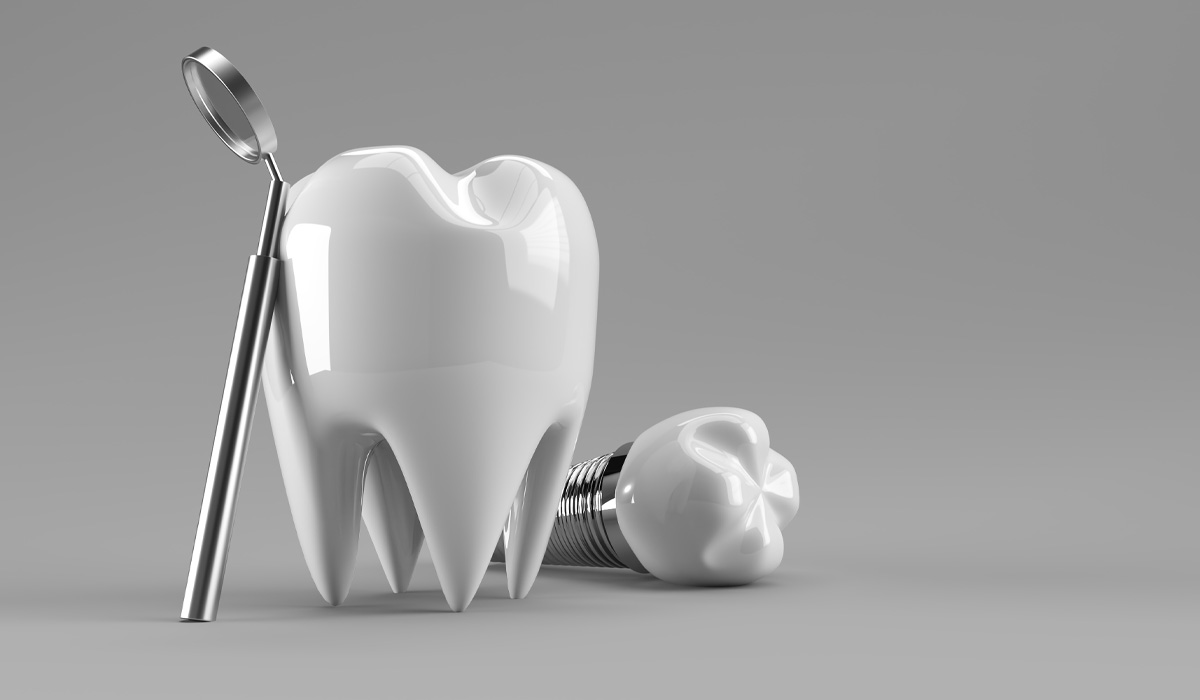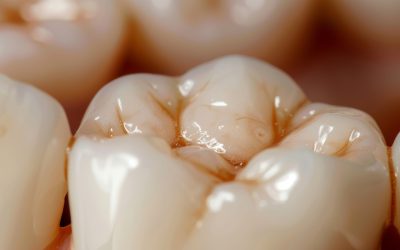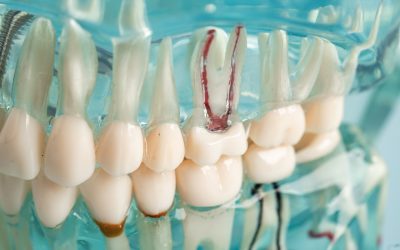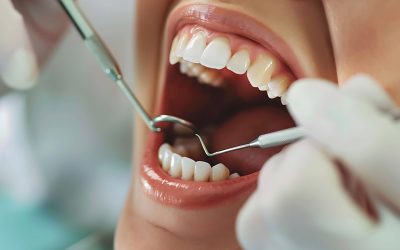Periodontal disease, commonly referred to as gum disease, is a chronic inflammatory condition that affects the tissues surrounding and supporting the teeth. It starts with the buildup of plaque—a sticky film of bacteria on the teeth—which, if not properly removed through regular brushing and flossing, hardens into tartar. The presence of bacteria and tartar leads to inflammation of the gums, and over time, this can progress into more serious stages of the disease.
Periodontal disease occurs in two primary stages: gingivitis and periodontitis.
- Gingivitis is the earliest stage of periodontal disease, characterized by inflamed, red gums that may bleed during brushing or flossing. At this stage, the damage is reversible with proper oral hygiene and professional dental care.
- Periodontitis is the more advanced stage, where the inflammation spreads deeper into the supporting structures of the teeth, including the bone. The gums begin to pull away from the teeth, forming pockets that can become infected. If untreated, periodontitis can lead to bone loss, receding gums, and ultimately, tooth loss.
The progression of periodontal disease is gradual, but it can cause irreversible damage if not addressed early. Understanding the stages and symptoms is key to preventing serious complications.

Periodontal Disease Symptoms
The symptoms of periodontal disease can range from mild to severe, depending on the stage of the condition. Below are the most common symptoms, which often indicate that professional dental care is needed:
- Red, Swollen, or Bleeding Gums: One of the earliest signs of gum disease is inflammation, causing the gums to appear red and swollen. They may also bleed during brushing or flossing. This is a common symptom of gingivitis, signaling the need for improved oral hygiene and possibly professional intervention.
- Persistent Bad Breath: Chronic bad breath, or halitosis, can be a sign of periodontal disease. Bacteria in the mouth release foul-smelling compounds as they break down food particles and proteins. If the bad breath doesn’t go away despite brushing, flossing, and using mouthwash, it could be linked to an underlying gum infection.
- Receding Gums: As periodontal disease progresses, the gums may start to pull away from the teeth, making them appear longer than usual. This receding gum line exposes more of the tooth surface, and in severe cases, the tooth’s root, which increases sensitivity and the risk of decay.
- Loose Teeth: In advanced stages of periodontitis, the disease affects the bone that supports the teeth, causing teeth to become loose or shift. If left untreated, this may lead to tooth loss or the need for extraction.
- Pus Between Gums and Teeth: The presence of pus between the gums and teeth is a clear sign of infection. Pus or abscesses can form as the body tries to fight the bacterial infection in the gum tissue, leading to pain and swelling.
- Changes in Bite: As periodontal disease progresses, the teeth may shift or become loose, altering the way they fit together when biting or chewing. This can affect how well you can eat and cause discomfort.
Recognizing these symptoms early and taking action can help prevent the progression of gum disease and protect your oral health.
Risk Factors for Periodontal Disease
While poor oral hygiene is the most significant risk factor for developing periodontal disease, other factors can increase the likelihood of developing gum problems:
- Smoking: Smoking or using tobacco products is a major risk factor for periodontal disease. Smokers are more likely to develop gum disease, and their condition tends to be more severe. Smoking also impairs the body’s ability to fight infection and heal.
- Hormonal Changes: Hormonal fluctuations during pregnancy, menstruation, or menopause can make the gums more sensitive and susceptible to gingivitis. Pregnant women, in particular, are at risk for “pregnancy gingivitis,” which, if left untreated, can lead to periodontitis.
- Medical Conditions: People with certain medical conditions, such as diabetes, are at a higher risk for periodontal disease. Diabetes affects the body’s ability to heal, and those with uncontrolled blood sugar levels are more prone to infections, including those in the gums.
- Poor Oral Hygiene: Not brushing and flossing regularly allows plaque to build up on the teeth, eventually leading to tartar formation and gum disease. Skipping regular dental check-ups and cleanings also increases the risk of developing periodontal disease.
- Genetics: Some individuals may be genetically predisposed to developing periodontal disease. If a close family member has suffered from gum disease, you may be at higher risk and should be extra vigilant about oral hygiene.
- Medications: Certain medications, such as those that reduce saliva flow (antihistamines, antidepressants), can contribute to gum disease. Saliva helps wash away food particles and bacteria, so a dry mouth increases the risk of plaque buildup.
By understanding these risk factors, you can take proactive steps to minimize your chances of developing periodontal disease and protect your gum health.

Prevention and Treatment
Preventing periodontal disease begins with maintaining a strong oral hygiene routine. Here are some essential tips to keep your gums healthy:
- Brush Twice a Day: Use a soft-bristled toothbrush and fluoride toothpaste to brush your teeth for two minutes, twice a day. Be sure to brush along the gum line to remove plaque and prevent gum disease.
- Floss Daily: Flossing is crucial for cleaning between teeth and under the gum line where a toothbrush can’t reach. Make it a habit to floss at least once a day to remove food particles and plaque.
- Regular Dental Check-ups: Visiting your dentist for regular cleanings and exams is vital for early detection of gum disease. Professional cleanings can remove tartar buildup and help keep your gums healthy.
- Quit Smoking: Smoking is a major risk factor for gum disease. Quitting tobacco products can significantly reduce your chances of developing periodontal disease and improve your overall health.
- Use Mouthwash: Antibacterial mouthwashes can help reduce plaque and bacteria in the mouth, lowering your risk of gum disease.
For those diagnosed with periodontal disease, several treatment options are available depending on the severity of the condition:
- Deep Cleaning (Scaling and Root Planing): This non-surgical treatment involves a thorough cleaning of the tooth root surfaces to remove plaque, tartar, and bacteria from beneath the gum line. Scaling removes the tartar, while root planing smooths the root surfaces to help the gums reattach to the teeth.
- Antibiotics: In some cases, your dentist may prescribe antibiotics to control infection and inflammation. These can be taken orally or applied directly to the gums.
- Surgical Procedures: In advanced cases of periodontitis, surgical intervention may be required. Procedures like flap surgery or bone and tissue grafts can help restore damaged tissues and bone that support the teeth.
When to See a Dentist
It’s important to visit your dentist as soon as you notice any symptoms of periodontal disease, such as red or swollen gums, persistent bad breath, or loose teeth. Early intervention can prevent the disease from progressing to more severe stages and save your teeth from further damage.
If you are at risk for periodontal disease due to smoking, medical conditions, or other factors, it’s especially important to schedule regular dental check-ups to monitor your gum health.
Take Charge of Your Gum Health
Periodontal disease is a serious condition that can lead to tooth loss and other health complications if left untreated. However, it’s also highly preventable. By maintaining good oral hygiene, addressing symptoms early, and seeking professional care when needed, you can protect your gums and enjoy a healthy, confident smile.
Don’t wait until it’s too late—take charge of your gum health today by practicing daily oral care, scheduling regular dental visits, and staying informed about the signs of periodontal disease. Your gums play a crucial role in your overall well-being, and with proper care, you can keep them healthy for life.








